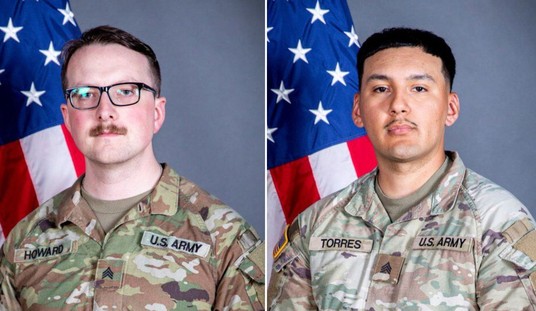Hamas spokesman Sami Abu Zuhri is not helping advance his organization’s cause.
Zuhri became the focus of criticism when a clip of him advocating for civilians to act as human shields in order to protect Hamas militants and assets exploded on the internet. A MEMRI TV translation of Zuhri’s appearance on Hamas’ Al-Aqsa TV showed him talking up the “character” of Palestinians who “defend their rights and their homes with their bare chests and their blood.”
“We in Hamas call upon our people to adopt this policy in order to protect the Palestinian homes,” Zuhri advocated.
On Sunday, Zuhri was caught in yet another public relations faux pas.
“This is something that people should hear,” Zuhri told his Palestinian audience (Arabic translation via MEMRI TV).
“We aren’t leading our people today to destruction,” he added. “We are leading our people to death.”
Zuhri appeared to recognize the impropriety of his statement “I mean, to confrontation with this occupier,” he corrected himself.
That little slip sure puts Palestinian Liberation Organization legal advisor Diana Buttu, who recently said it was “racist” to suggest the Palestinian territories cultivate a “culture of death,” in a difficult position.
Zuhri’s assertion, that Hamas is leading the people of the Gaza strip to death, sure does seem to be an accurate one, however. Last Wednesday, the terrorist organization released a list of new demands which would lead to a cessation of hostilities – all of which are non-starters for both the Israeli government and the Palestinian Authority in the West Bank.
In 2006, the Israeli Defense Forces solider Gilad Shalit was abducted from the front lines. In 2011, a deal was reached in which Shalit was freed in exchange for 1,000 incarcerated Palestinian militants, some of whom returned to militant activities and were rearrested. On Wednesday, Hamas demanded that all those freed militants who were rearrested be released as a precondition for the cessation of hostilities.
This seems to be a shifting of the goalposts from earlier this month when Hamas merely demanded Israel end its attacks on targets in Gaza and reopen the blockaded Gaza-Egyptian border. Even those demands were already unacceptable for both Jerusalem and Cairo.
On Saturday, Zbigniew Brezinksi, Jimmy Carter’s National Security Advisor, sent out an ironic tweet criticizing the United States for “not using its influence” to hasten an end to the conflict in Gaza.
Letting the bloodletting between Israel and Gaza develop on its own means that the US is not using its influence intelligently.
— Zbigniew Brzezinski (@zbig) July 12, 2014
It is ironic because America’s usual negotiating partner in these matters was the Egyptian government. The United States previously worked with both deposed presidents Hosni Mubarak and Mohamed Morsi to settle conflicts between the Israelis and Palestinians in Gaza.
While America’s relationships with both Egyptian leaders were often rocky, the U.S. still successfully used the influence it carved out during the Cold War when it wrested Cairo away from its alliance with the Soviet Union to isolate and contain Israeli-Palestinian conflicts. It was Brezinksi and Carter who cemented that relationship with the Egyptian military when they successfully negotiated the Camp David accords.
True, both Morsi and Mubarak’s relationship with Hamas was far better than the current Egyptian regime’s, but the United States bears some blame for the deterioration of the bilateral relationship with Egypt as well. The Obama administration’s handling of the 2011 – 2013 crisis in Egypt, in which they cut off some support for that country’s military after Morsi’s ouster in what the United States determined was a military coup. In that moment, the Obama White House undid one of the last of the Carter administration’s only real accomplishments and made maintaining Middle East peace that much more difficult.
The Associated Press reports on how the White House is scrambling to find a new partner with whom they can work in order to secure a ceasefire:
A senior Obama administration official said that policy hasn’t changed but that other players in the Mideast could act as intermediaries, as was the case when Egypt and former Secretary of State Hillary Rodham Clinton worked to secure the November 2012 cease-fire. Egypt, Turkey or Qatar are all possibilities, said the official, who demanded anonymity to discuss sensitive diplomatic matters.
The effort to find new interlocutors appears to have failed. Secretary of State John Kerry will head to Cairo tomorrow in order to repair relations and force an end to the conflict in Gaza.
Surely, Brezinksi knows his tweet was a subtle condemnation of Obama’s approach to foreign affairs. In that tweet, Brezinksi highlighted how America’s regional “influence,” a force which he played a major role in crafting, has been so utterly depleted by the current administration.








Join the conversation as a VIP Member